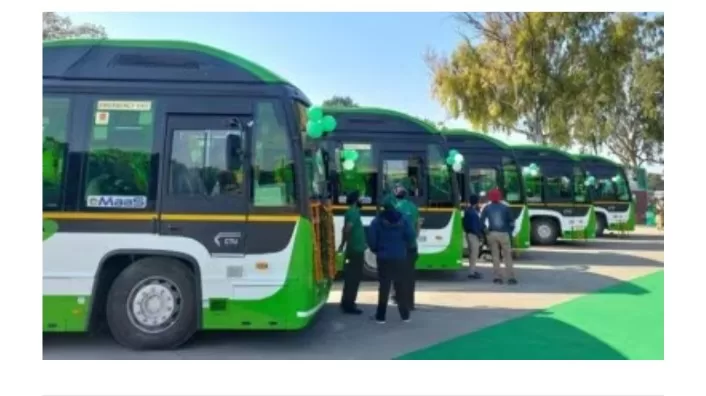In a move poised to redefine India’s urban transportation landscape, the Union government is poised to unveil tenders for a significant tranche of 3,000 electric buses, a substantial component of the ambitious PM eBus Sewa initiative. This initiative, greenlit by the Cabinet in August, seeks to augment the public transport infrastructure of 169 eligible cities with a grand total of 10,000 electric buses.
With meticulous guidance provided by the Ministry of Housing and Urban Affairs, the PM eBus Sewa scheme is strategically tailored to serve smaller cities that currently grapple with inadequate public transportation options. The procurement of these electric buses will operate under a pioneering public-private partnership (PPP) framework, with the government pledging to offer a payment per kilometer to the operators. Sources indicate that the inaugural tender for buses under the PM e-Bus Sewa program is imminent.
Housing and Urban Affairs Minister, Hardeep Puri, while inaugurating the 16th Urban Mobility India Conference, asserted that the PM e-Bus Sewa venture will not only advance the deployment of electric buses but also facilitate the creation of vital depots and power infrastructure within participating cities.
Puri further highlighted India’s impressive strides in the realm of metro networks, revealing that the country’s metro rail system has extended to a sprawling 895 kilometers. In a momentous prediction, Puri noted that India is on track to surpass the United States within the next two to three years, eventually becoming the world’s second-largest metro network, trailing only China. He underlined that the metro network currently boasts a daily ridership of approximately 1 crore passengers, with this figure expected to swell as last-mile connectivity is enhanced.
Moreover, the PM e-Bus Sewa initiative drew global recognition when it was featured in the India-United States joint statement, which emerged following the meeting between U.S. President Joe Biden and Prime Minister Narendra Modi on the sidelines of the G20 Summit in September. The statement specifically acknowledged India and the U.S.’s commitment to collaboratively establish a payment security mechanism for the electric bus program.
The joint statement articulates a shared commitment to decarbonize the transport sector and heralds their progress in expanding electric mobility in India. Both nations have pledged their support for a payment security mechanism, bolstered by a blend of public and private financing. This mechanism is primed to expedite the acquisition of 10,000 made-in-India electric buses, including those earmarked for the Indian PM e-Bus Sewa program, which includes the vital charging infrastructure.







